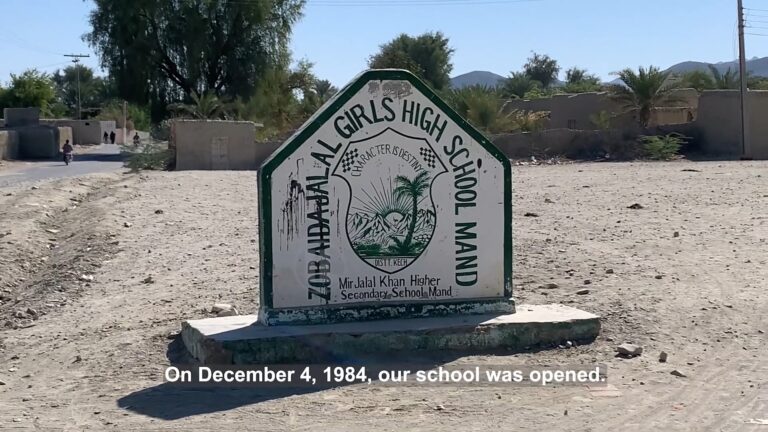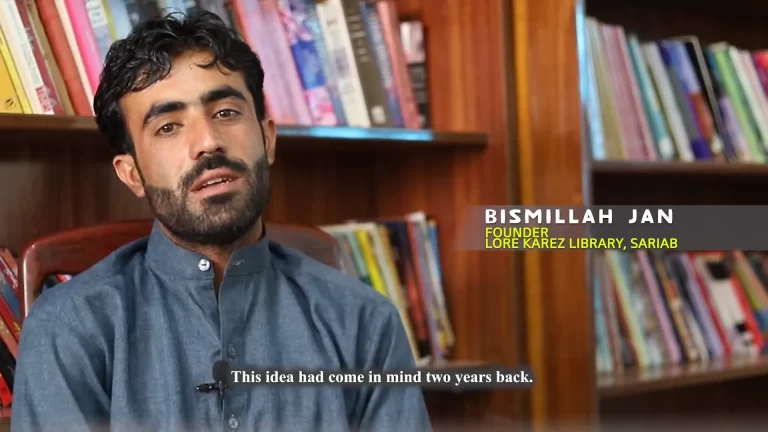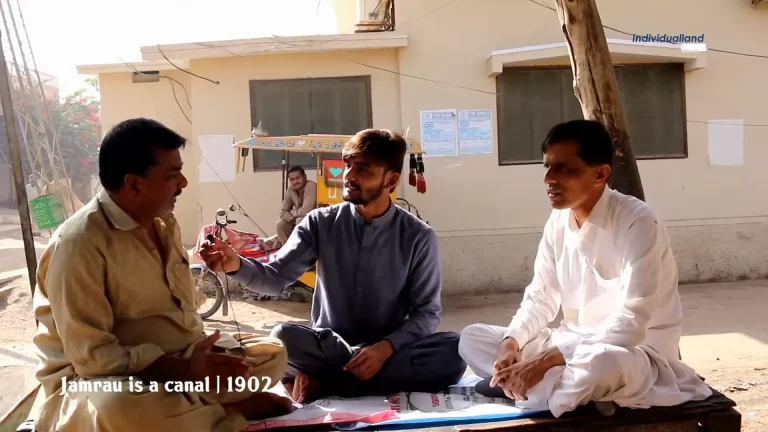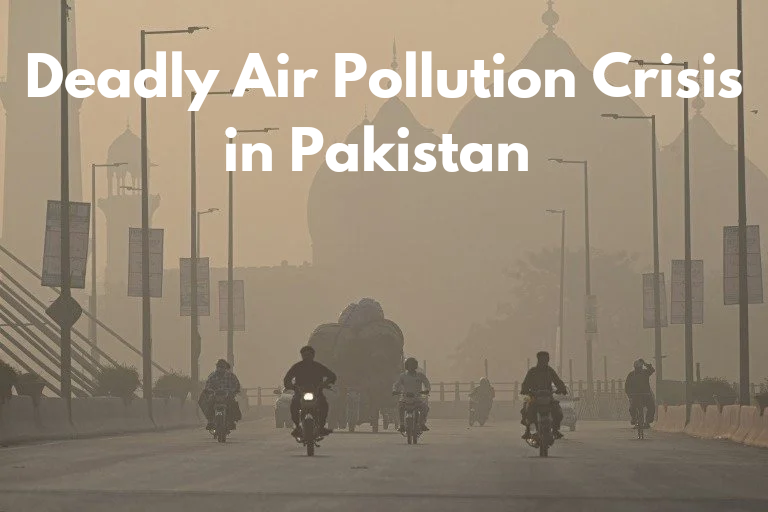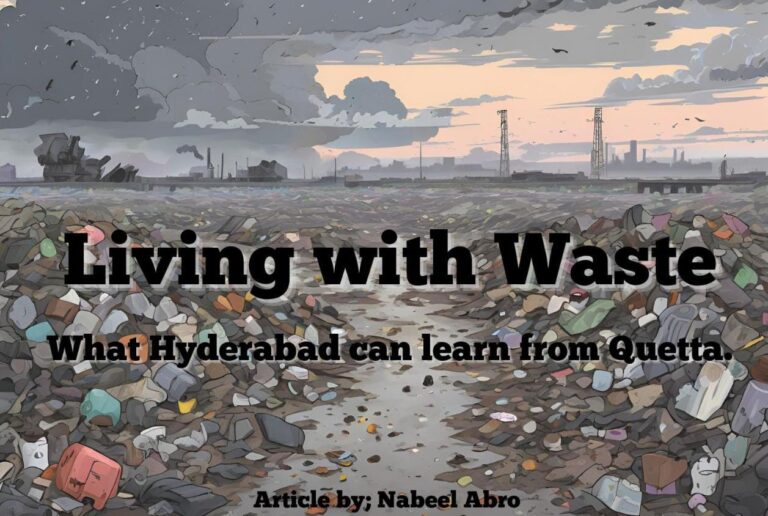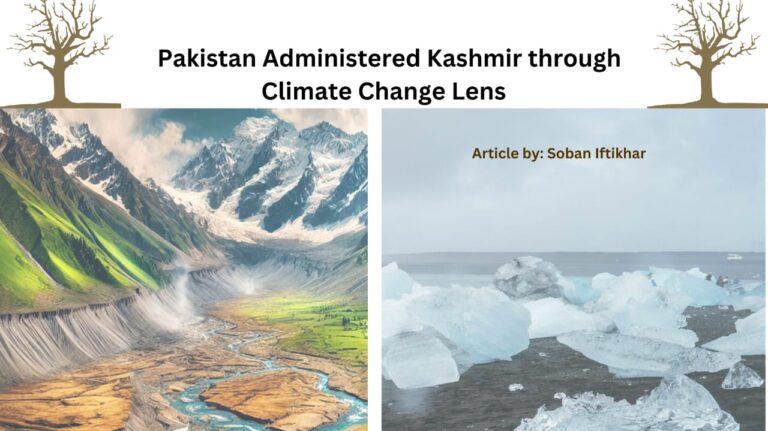The IRSA Act Amendments & the Mirage of Corporate Farming
Pakistan is currently facing a constitutional crisis, where various provisions of the constitution are not being adhered to. What Ayesha Siddiqa has aptly termed a “hybrid democracy,” the provincial and federal governments have been systematically stripped of their powers. Political figures, such as Akhtar Mengal, has spoken out about this imbalance recently leading to raid in his apartment at Parliament lodges, citing how mainstream political parties are confined by boundaries they fear crossing, particularly in light of incidents during the 26th constitutional amendment debate. Lawmakers have reported facing intimidation, abductions, and a lack of transparency, all of which have stifled their ability to assert independence in governance. This erosion of democracy has not only weakened the political autonomy of federal and provincial structures but has also exacerbated long-standing crises like the ongoing water dispute between Sindh and Punjab. The persistent social and political crises afflicting the country remain unresolved, with no significant efforts to address them.
Moreover, the power nexus appears indifferent to these issues, suggesting that the problems will be left unresolved, to be dealt with according to local circumstances in the future, without any significant action from the state. There seems to be no agenda or intent to address these crises legally or to ensure justice for the masses. Pakistan’s federal and provincial contradictions remain unresolved, one of the most significant being the ongoing water crisis.
Sindh and Punjab have been in conflict over water rights since as far back as 1859, during the British colonial era, when Sindh consistently raised complaints about the water dispute. The British established several commissions, such as the 1935 Anderson Commission and the 1941 Indus Rao Commission, to address these concerns. After partition, four more commissions were set up: the Akhtar Hussain Commission (1968), the Fazal Akbar Commission (1971), the Anwar-ul-Haq Commission (1981), and the Haleema Commission (1983), but Sindh never received justice regarding its water rights. Against this historical backdrop, in 1991, the Water Apportionment Accord (WAA) was signed during Nawaz Sharif’s tenure. Prior to that, Sindh had led a significant movement against the Kalabagh Dam, pointing out the failures of previous water commissions.
A local political Activist, Madad Mirjat, from Thatta shares, “Sindh has never received its fair share of water. We didn’t even acknowledge the 1991 Water Agreement, but the truth is, even that agreement was never followed. The rising sea is now taking over our lands; without the sweet water flowing into the delta, the sea keeps expanding, engulfing more of our lands. As a result, our lands are turning barren and lifeless.”
The establishment of the IRSA Act was an outcome of the 1991 Water Accord. The primary function of this act, as per the agreement, was to ensure the just distribution and monitoring of water. After the 18th Amendment, the IRSA Act came under the Council of Common Interests (CCI), making IRSA a collective institution representing all provinces. Under this arrangement, members from each of the four provinces have equal representation and authority. The chairman is selected on a rotational basis, but does not hold absolute power. Since IRSA is part of the CCI, any conflicts between provinces must be presented to the CCI, and decisions should be made either by consensus or by majority vote. Article 154 (1) of the Constitution empowers the CCI to formulate and regulate policies on subjects contained in the Federal Legislative List Part II, where Item 6 mentions “all regulatory authorities established under a federal law.” Additionally, Article 155 addresses water-related issues, stating: “if the interests of a province, the federal capital, or any of the inhabitants thereof in water from any natural source of supply [or reservoir] have been or are likely to be affected.” Thus, IRSA constitutionally falls under the domain of the CCI. Given these provisions, the federal cabinet has no jurisdiction over IRSA-related matters. Any attempt to amend the 1992 IRSA Act without adhering to these constitutional stipulations would be a violation of the Constitution.
Recently, an extra constitutional plan was put forth involving amendments to the IRSA Act by the previous interim government, whose basic function was only to hold elections and not carry out amendments and additionally the act falling under the domain of CCI. Sindh condemned and opposed it, preventing the interim government from moving forward. As a result, President Arif Alvi, before leaving office, avoided acting on it. The proposed amendment suggests that the prime minister, rather than the federal government, would be responsible for appointing the IRSA chairman, a change reportedly favored by President Asif Ali Zardari. This raises a critical question: under which clause of the Constitution was this proposal presented to the president? The current Constitution offers no provision for such an action, as the 18th Amendment has stripped the president of such powers. Not only has the president been deprived of these powers, but the prime minister also no longer holds such absolute authority following the 18th Amendment. This leads us to ask: what circumstances have driven the state to propose such drastic measures?
In parallel to the proposed amendment, let’s also consider the state-owned project of the Green Initiative in Pakistan supported by international monetary organizations. There is a global momentum, largely backed by international organizations like the United Nations Environment Programme (UNEP), World Bank, and Asian Development Bank (ADB), which propose support for governments to promote agricultural productivity. Under this initiative of corporate farming, in Pakistan, the Green Initiative was introduced in 2016 and draws its connection to the National Climate Change Policy (NCCP), initially approved in 2012 and becoming effective in 2013. In January 2024, as per the press release, the unelected caretaker Sindh government signed an agreement to launch corporate farming in Sindh, under which approximately 52,000 acres of land have been identified to be utilized by corporations for farming, using the most advanced agricultural equipment to increase productivity.
However, the locals have contrasting sentiments. Faiz Keerio from Sakrand, who has been politically active against the so-called “corporate farming” through the Sindh Hari Pohriyat Committee, shares: “Small farmers like myself are the ones directly affected by state policies, which have grown increasingly abusive in recent years. These policies have made it difficult for farmers to even cover the costs of production. For instance, the cotton price was set at 10,000 PKR, but due to corrupt practices in the supply chain, small producers end up receiving only 7,800 PKR, resulting in significant losses.” He further adds, “Corporate farming is presented as a solution to the global food crisis, but in reality, it has left small farmers more vulnerable and pushed us to the edge.”
The major setback of this IRSA Act amendment is that the Prime Minister will now have the authority to select the IRSA chairman. This raises concerns regarding the appointment process for chairmanships which may bypass due process and necessary consultation with relevant stakeholders. This could lead to the direct appointment of individuals dictatorial inclinations raising further concerns about transparency and accountability. The chairman will have the power to make decisions under the guise of “strategy” for the betterment of the people. Evidence from past dictatorship periods, such as Zia-ul-Haq and Musharraf, shows that the people of Sindh resisted against the Kalabagh Dam and rejected the Greater Thal Canal project, building a movement against it. As mentioned on the website of the Ministry of Information and Broadcasting, Government of Pakistan, under the Green Pakistan Initiative, the Special Investment Facilitation Council (SIFC) has identified 4.8 million acres of land for corporate farming to be handed over to mega-corporations, citing potential food insecurity as a primary concern. The truth is that there is no surplus water in the country for this project. Every drop of water is already allocated under the 1991 water agreement. The question arises: how will these 4.8 million acres of land be cultivated without water?
Zuhaib Pirzada, a researcher and freelance climate change journalist actively part of the workers’ resistance movement based in Thatta, shares from his research: “I believe the delta is on a ventilator, and if something isn’t done to protect it, the results will be devastating. Historically, in the 1200s, around 150 (Million acre-feet) of water flowed annually to the Indus Delta, maintaining a vibrant ecosystem. Today, due to dams, irrigation, and climate change, less than 10% of that flow (as little as 1.2 MAF in some years) reaches the delta, severely impacting its health.”
The National Climate Action Policy report from October 2021 highlights critical water scarcity issues in Pakistan, such as the intrusion of saline water into the Indus Delta affecting agriculture and marine ecosystems, and threats from rising sea levels and increased cyclonic activity. Additionally, it notes the growing tension between upper and lower riparian regions over water resource sharing. This reflects the ill intention that is the foundation of the IRSA Act amendment, which is to divert water resources and allow corporations adequate supplies of water to cultivate yields at the expense of the livelihoods of indigenous people, the life of the river, and the fertility of the soil.
Zuhaib Pirzada further adds, “Water is being used as a weapon of war against the lower riparian and its people. The Green Pakistan Initiative translates into barren Sindh.”
According to customary international law on water, an important document is the United Nations Convention on the Law of the Non-Navigational Uses of International Watercourses (UN Watercourses Convention), adopted in 1997. This convention codifies the principle of “equitable and reasonable utilization” and the obligation not to cause significant harm to lower riparian states. In the local context, we can understand this to mean that, without the consensus of the people of Sindh, who fall within the lower riparian, it would be a violation of international law to build any canals or dams to redirect the water flow.
The Government of Sindh, Environment, Climate Change, and Coastal Development Department’s Directorate of Climate Change, in its Climate Change Policy – 2022, also highlights that “the growing water scarcity in Sindh has led to increased saltwater intrusion into the Indus Delta, causing soil salinity, mangrove deterioration, and loss of marine fisheries. This climate change impact is projected to severely affect agriculture, forestry, and fisheries, exacerbating poverty among marginalized rural communities reliant on these natural resources.” This reinforces the argument presented by the people of the lower riparian regions, who have never received an adequate water supply for the delta, which has led to the destruction of the local ecosystem.
Zuhaib Pirzada also commented, “The indigenous people in Thatta, Sujawal, and the Kharo Chan region, whose ancestors owned lands spanning across 700 to 1,000 acres, now work as daily wage laborers. This is due to rising sea levels, which have not only destroyed the natural ecosystem but also had the worst impact on the mangrove creeks and the life within them.”
It is not enough to view this with such a narrow lens, but it is of integral importance to expand our understanding and recognize the global trends that have found their way to Pakistan. The global neoliberal order and its policies advocate for market deregulation; organizations like the International Monetary Fund and the World Bank encourage privatization and deregulation, allowing easy entrance of corporations into the agricultural sector. In a report on the System of Rice Intensification (SRI) in India, the author discusses how the shift from traditional farming, aimed at feeding the nation, to an approach focused on the global economy has put the agricultural sector on an unsustainable path. This transition has led to the overexploitation of land, reducing its fertility. The hybrid seeds used in this system prevent the natural growth cycle of crops from completing, necessitating the excessive use of fertilizers to maintain yields. This practice exhausts the soil far earlier than would naturally occur, causing long-term damage to land productivity and sustainability. This is the universal agenda of the neoliberal system in the 21st century, and its serious implications and consequences are yet to unfold. Viewing these issues solely within the local context is both simplistic and a strategic misstep. There is a global agenda to gradually eliminate the ownership of land, natural resources, water, and environmental resources from the hands of poor indigenous peoples around the world. “They see Sindhu as a commodity like the colonizers, but to us and our people, we worship Sindhu; it is a part of our being.” Zuhaib added
Although there is much resistance locally from civil society and progressive political parties, many protests and demonstrations have been led against these anti-people agendas. But there are many nuances to this. Faiz Keerio, leader of the Sindh Hari Pohriyat Committee, shares, “The Green Revolution of the 1960s, particularly during Ayub Khan’s regime, led to the rise of a middle-class farmer. These farmers often act in their own interest, supporting or opposing resistance movements depending on what benefits them.” This reflects that the ultimate burden of this falls on small-scale local farmers and the indigenous people, whose livelihoods are largely based on farming and fishing. We must address the sensitivity of this issue and prepare for future threats. A collective struggle is needed, involving political parties, experts, media, and all knowledgeable individuals playing their respective roles.
The Pakistan People’s Party (PPP) governs Sindh, and the current president belongs to the same party. However, despite this political alignment, the proposed amendment to the IRSA Act cannot be passed without the support and consent of both houses of Parliament. Although the Sindh Irrigation Department and Sindh’s representative in the Indus River System Authority (IRSA) opposed the amendment, President Zardari’s approval of it has sparked controversy. This approval is seen as illegal by many due to its conflict with the jurisdictional authority of the Council of Common Interests (CCI), as outlined in the Constitution, further aggravating concerns in Sindh. A positive development, however, is that under pressure from civil society, both the Sindh Assembly and Sindh Cabinet have firmly opposed the proposed amendment to the IRSA Act. In an interview on October 18th, 2024, the Chief Minister of Sindh emphasized, “The Sindh government and People’s Party will never back down when it comes to protecting the rights of Sindh.”
Therefore, building more comprehensive public momentum is essential to resist the long-term environmental degradation and economic vulnerabilities of the masses. Historical evidence shows that the region of the Indus River, from Tibet to the Indus Delta, has the potential for self-sustainability. It is culturally and economically rich and maintained its natural equilibrium until it caught the colonizers’ eye, gleaming with greed for profit maximization. Ever since, it has all come crumbling down. The neoliberal agenda, driven by profit maximization and at the cost of indigenous people, systematically undermines their connection to land, which is fundamental to their identity and culture. Historical evidence demonstrates that the dispossession of land not only leads to economic marginalization but also the erosion of cultural identity, serving the broader objectives of corporate and state interests under neoliberal policies.
Disclaimer
We have made every effort to ensure the accuracy of the text and content on this website. Individualland and Friedrich Naumann Foundation do not accept responsibility for any unintentional omissions. We appreciate accurate information to enhance our work. The articles on this website are supported by Friedrich Naumann Foundation for Freedom Pakistan, but the views expressed here do not necessarily represent the views of the Friedrich Naumann Foundation for Freedom.


